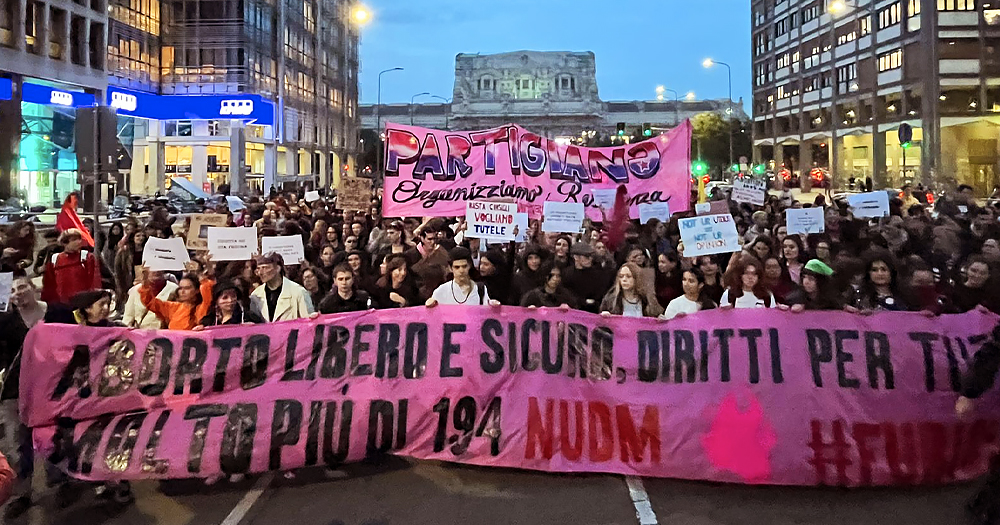After the results of the elections in Italy were announced last Monday, September 26, with the far-right coalition winning the majority of the votes, Italians started to protest all over the country.
Following the election victory of the far-right coalition in Italy last Sunday, the way is paved for what is deemed the country’s farthest-right government since Benito Mussolini. Giorgia Meloni, who is set to become Italy’s first female Prime Minister, is the leader of Brothers of Italy, the party that gained the majority of votes in the far-right coalition and that has repeatedly used anti-LGBTQ+, anti-feminist and anti-immigrant rhetoric.
In the following days, people from all over Italy started to protest against the far-right agenda of the people who are going to form the new government. Students of the Manzoni high school in Milan were the first to start, gathering in the gym and declaring that the school was under occupation.
They released a statement saying that their actions were prompted by “the political and social situation outside our school”, the “climate emergency”, and “the victory of a party that historically remains tied to fascist symbols and rhetoric”.
https://twitter.com/manolo_loop/status/1575166904678744066?s=20&t=CnEAV5lWlPoERe6x27neHA
Indeed, Meloni’s Brothers of Italy party has neo-fascist origins and has been accused on numerous occasions of striving to represent a continuity with Mussolini’s regime. During the electoral campaign, Meloni and her party employed the same rhetoric used by other conservative leaders such as Hungary’s Victor Orbán, especially regarding immigration, the LGBTQ+ community and women’s rights.
While Meloni promised that she will not alter Italy’s existing law on same-sex civil unions and that she will only “extend” the one on abortion, activists in Italy are worried that she will still act to restrict access to such rights. Access to safe abortion is already widely compromised in Italy, as roughly 70% of gynecologists in the country declared to be “conscientious objectors”, which allows them to refuse to perform the required procedures on the basis of religious freedom.
International Safe Abortion Day in Milan, Italy on September 28, 2022.
For @anadoluimages #AbortionRights #nonunadimeno pic.twitter.com/yyhS83UDWj— Piero Cruciatti (@pcruciatti) October 2, 2022
In some regions, especially in those where Meloni’s party was in power even before the elections, access to safe abortion has been restricted so much that it is practically non-existent. Meloni has been quite vocal about her positions against the termination of pregnancy and, despite her promise, she said she wants to grant women the right to “not get an abortion”.
On September 28, thousands of people gathered in over 16 cities in Italy to protest the far-right agenda and to safeguard the right to abortion. “We don’t trust them.” declared Marta Autore, a member of Italian feminist organisation Non Una di Meno. “We fear that new obstacles will arise for women who want to have an abortion.”
She also added, “We cannot allow abortion to be reserved for those who have the financial means to move to distant public facilities or take refuge in private clinics.”
© 2022 GCN (Gay Community News). All rights reserved.
Support GCN
GCN is a free, vital resource for Ireland’s LGBTQ+ community since 1988.
GCN is a trading name of National LGBT Federation CLG, a registered charity - Charity Number: 20034580.
GCN relies on the generous support of the community and allies to sustain the crucial work that we do. Producing GCN is costly, and, in an industry which has been hugely impacted by rising costs, we need your support to help sustain and grow this vital resource.
Supporting GCN for as little as €1.99 per month will help us continue our work as Ireland’s free, independent LGBTQ+ media.

comments. Please sign in to comment.